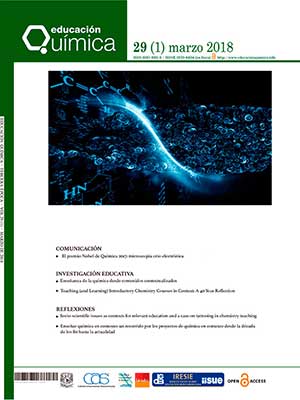Problem-based learning: how long does it take pasteurized milk to decompose at room temperature?
Main Article Content
Abstract
The chemical kinetics of Bachelor's degree courses, studies the speed of chemical reactions, as well as the effects of temperature on the speed of reaction, through exercises that use mathematical methods such as integration of speed equations and functions that are adjusted by means of linear regression. With these exercises, students developed the mathematical treatment of the data without achieving meaningful learning. Therefore, that there is a need to create exercises as "real problems", that have to do with their daily lives, that is, applying learning based in problems (PBL). The problem showed is how long (in hours) pasteurized milk be kept at room temperature? students of Physical Chemistry V (Chemical Kinetics), of the career of chemistry of the FES Cuautitlán UNAM. From the questioning, emerged a series of questions, responses, and actions by part of the students and the professor. First-order model, the Arrhenius equation with the appropriate mathematical treatment students determined the number of hours that preserves the milk at room temperature. The results showed that after applying PBL, the students understood the effect of temperature on the speed of the reaction. This strategy, allowed to study the effect of temperature on the speed of a reaction in a didactic way to achieve significant learnings, so it can be used in chemical kinetics courses in order to increase academic achievement.
Article Details
Citas en Dimensions Service

Educación Química por Universidad Nacional Autónoma de México se distribuye bajo una Licencia Creative Commons Atribución-NoComercial-SinDerivar 4.0 Internacional.
Basada en una obra en http://www.revistas.unam.mx/index.php/req.




